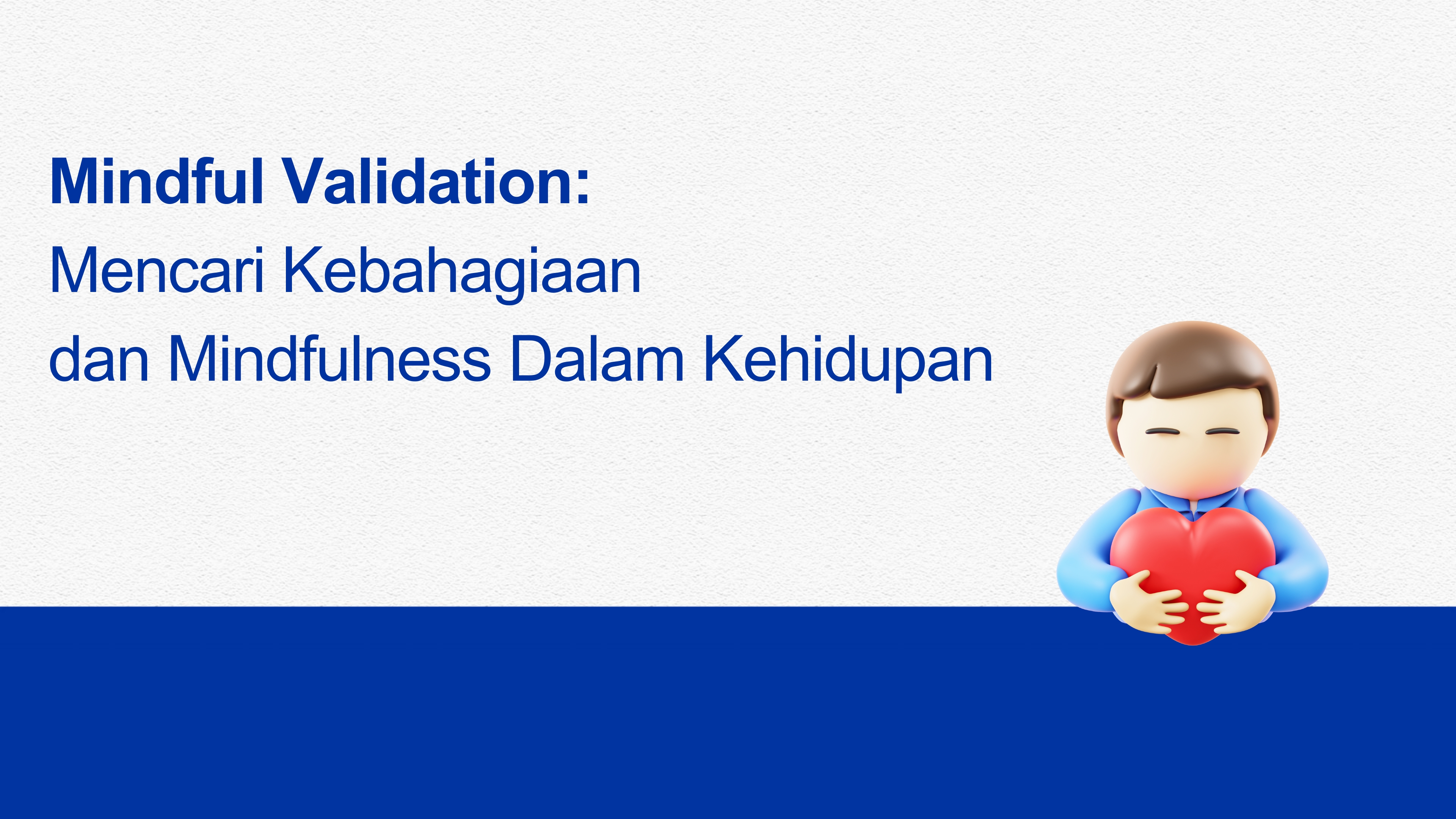Mindful Validation: A Path to Happiness and Mindfulness in Facing Situations

In a rapidly evolving world that often prioritizes achievements and end results, many individuals find themselves pursuing success without realizing that true happiness lies in the journey itself. This pursuit can lead to a lack of self-appreciation and the establishment of excessively high personal standards.
Mindful validation is the practice of acknowledging, accepting, and understanding one’s feelings and experiences with full attention and without judgment. In daily life, many people seek external validation, such as praise or recognition from others, to feel valued. This tendency is especially prevalent among Generation Z and Generation Alpha, given the polarization of social media culture and trends.
Through mindfulness, individuals are not only encouraged to accept their surroundings but also to appreciate the present moment. This approach can help mitigate the excessive pursuit of external validation. According to the book The Courage to Be Disliked, written by Ichiro Kishimi and Fumitake Koga, based on the philosophy of Alfred Adler, mindfulness and openness are recommended practices to achieve happiness.
The book advocates for living free from the fear of others' judgment while focusing on the present and embracing authenticity. Concentrating on the activities at hand can reduce anxiety often triggered by unmet expectations. By implementing this mindset, individuals can better manage stress and disappointment that may arise from failures or obstacles.
Such practices help alleviate social pressure to appear perfect and diminish the fear of being judged. Adopting this approach fosters self-confidence and supports genuine personal growth. Furthermore, understanding what lies beyond one’s control can reduce feelings of disappointment and encourage a more positive perspective on situations. This openness promotes constructive problem-solving when facing challenges. Setting realistic expectations also prevents individuals from succumbing to anxiety or fear of failure.
Mindfulness fosters empathy, both for oneself and others. By becoming more attuned to their own emotions, individuals can understand and accept their feelings without being burdened or self-critical. This enables greater tolerance in addressing mistakes or shortcomings. Empathy cultivated through mindfulness also enhances social sensitivity, fostering stronger interpersonal connections.
By strengthening self-acceptance, focusing on the process, and maintaining healthy boundaries, individuals can enjoy life’s journey and create authentic happiness. Mindfulness and self-honesty teach the importance of forgiveness, self-compassion, and attentiveness in managing relationships with others.
Dian Nusantara University, which emphasizes knowledge and character development, aspires for its students to become valuable contributors to the nation and society through various innovations and opportunities provided. It is hoped that this article will positively impact Dian Nusantara University students, especially those facing challenges both within and beyond the academic sphere.
(Kornelia Johana / Humas UNDIRA)
Press Contact :
Biro Humas & Sekretariat Universitas Dian Nusantara
Facebook : www.facebook.com/undiraofficial
Instagram : www.instagram.com/undiraofficial
Twitter : www.twitter.com/undiraofficial
www.undira.ac.id
Other

Cultivating the Future, Strategizing Finances: Investing Early and Understanding Various Types of Investments
Read more
Comparative Study on Literature: UNDIRA Holds a Visit and Focused Group Discussion with UKRIDA
Read more
Integrating Javanese Culture in Building a Professional Image: UNDIRA Communication Studies Promotes Character Development Through Table Manner
Read more
Campus Tanjung Duren
Jln. Tanjung Duren Barat II No. 1
Grogol, Jakarta Barat. 11470
Campus Green Ville
JIn. Mangga XIV No. 3
Campus Cibubur
Jln. Rawa Dolar 65
Jatiranggon Kec. Jatisampurna, Bekasi. 17432







